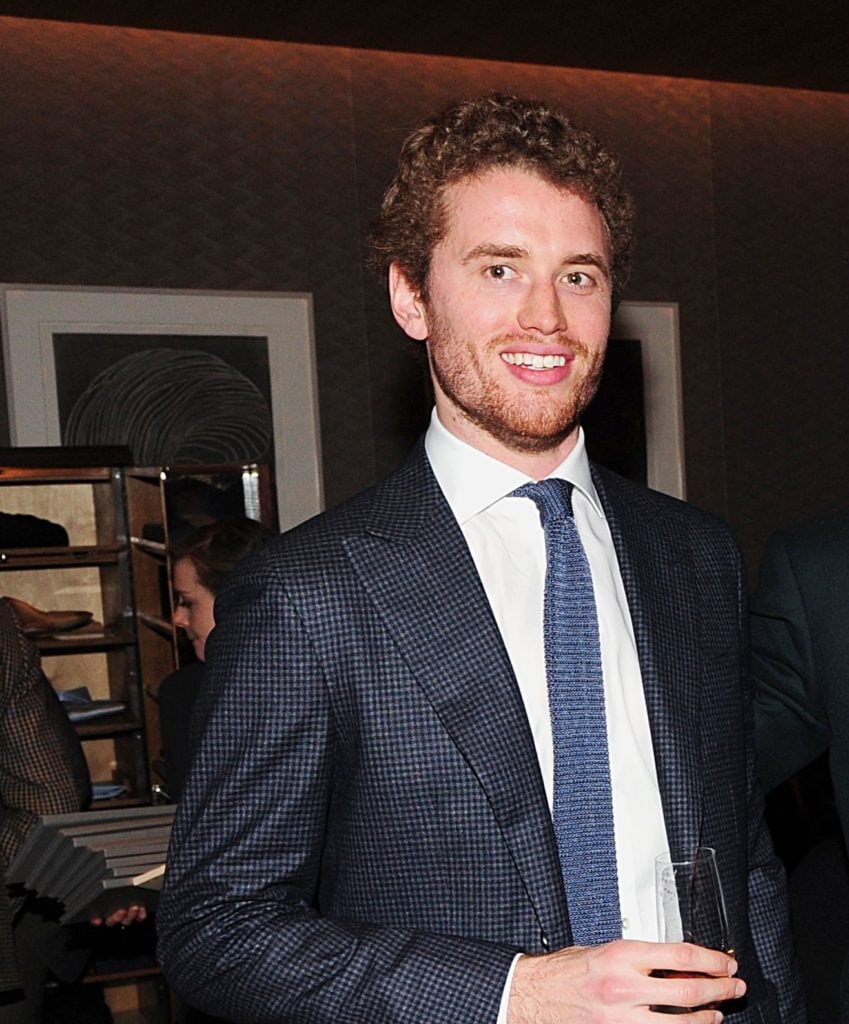Crime
A British Dealer Accused of Conspiring With Inigo Philbrick in His Elaborate Art-Fraud Scheme Now Faces Extradition to the U.S.
Newland is home on bail and under electronic monitoring in London.

Newland is home on bail and under electronic monitoring in London.

Eileen Kinsella

British art dealer Robert Newland, who was indicted this past February in connection with the criminal case against convicted art dealer Inigo Philbrick, now faces extradition to the United States.
Newland, 43, is out on $306,000 (£250,000) bail in the U.K., according to The Times, which first reported on the new developments. He must abide by a nightly curfew and wear an electronic monitoring tag from his $2.2 million five-bedroom home in West London, the newspaper reported. Asked for comment, Newland told The Times: “I’ve got no statement. It’s all being worked out at the moment. It’s being taken care of.”
This marks the first time Newland has spoken publicly about the ordeal. Neither he nor his attorneys responded to Artnet News’s request for comment and it remains unclear if he was detained by authorities prior to posting bail. A hearing scheduled for November at Westminster magistrates’ court will determine whether the U.K. grants the extradition request.
Philbrick’s attorney Jeffrey Lichtman confirmed that the actions against Newland have “no bearing on Inigo’s case at this time,” adding that he doesn’t expect “Newland to be castigated as much publicly even though he was Inigo’s co-conspirator.” Philbrick was sentenced to seven years in prison late last month.
The U.S. indictment claims Newland committed wire fraud and conspiracy to commit wire fraud during a three-year period beginning in 2016. It accuses him of “willfully and knowingly having devised and intending to devise a scheme and artifice to defraud and for obtaining money and property by means of false and fraudulent pretenses, representations, and promises.”
Authorities have demanded Newland surrender any alleged ill-gotten assets that could be traced to his apparent dealings with Philbrick.
Newland initially appeared on Philbrick’s criminal docket in July 2020—shortly after the dealer’s arrest on the island of Vanuatu in the South Pacific—as “sealed defendant 1.” His identity was unsealed in February. His name also appears in emails associated with at least one multimillion-dollar civil lawsuit against Philbrick.
A representative for the U.S. Attorney’s office said he could not comment on matters of extradition, citing department policy.

A now-deleted screenshot of Newland’s staff page via Superblue.com
Philbrick and Newland first met at White Cube Gallery in London, where powerful dealer Jay Jopling helped jumpstart Philbrick’s career. Newland worked in the gallery’s finance department before taking a job at McKinsey & Company. The U.K. register Companies House also lists him as a director of Philbrick’s secondary-market dealership Modern Collections from 2014 until he resigned in December 2016.
Later, Newland worked for Hauser and Wirth for roughly two years, sources say, but was terminated in late 2019, a few months after allegations against Philbrick surfaced. Most recently, Newland worked as a sales director for the experiential-art company Superblue.
Around the time news of the indictment broke, a representative confirmed that Newland was taking a temporary leave of absence from Superblue.
Late last month, a U.S. District Court judge sentenced Philbrick to serve seven years in prison for crimes connected to his now-collapsed art-dealing business. Prosecutors accused Philbrick of committing “one of the most significant frauds in the art market in history,” describing his operation in a sentencing memorandum as “Ponzi-like.”
After initially entering a not guilty plea, he eventually pleaded guilty to a criminal charge of wire fraud last November and has been in jail for nearly two years.